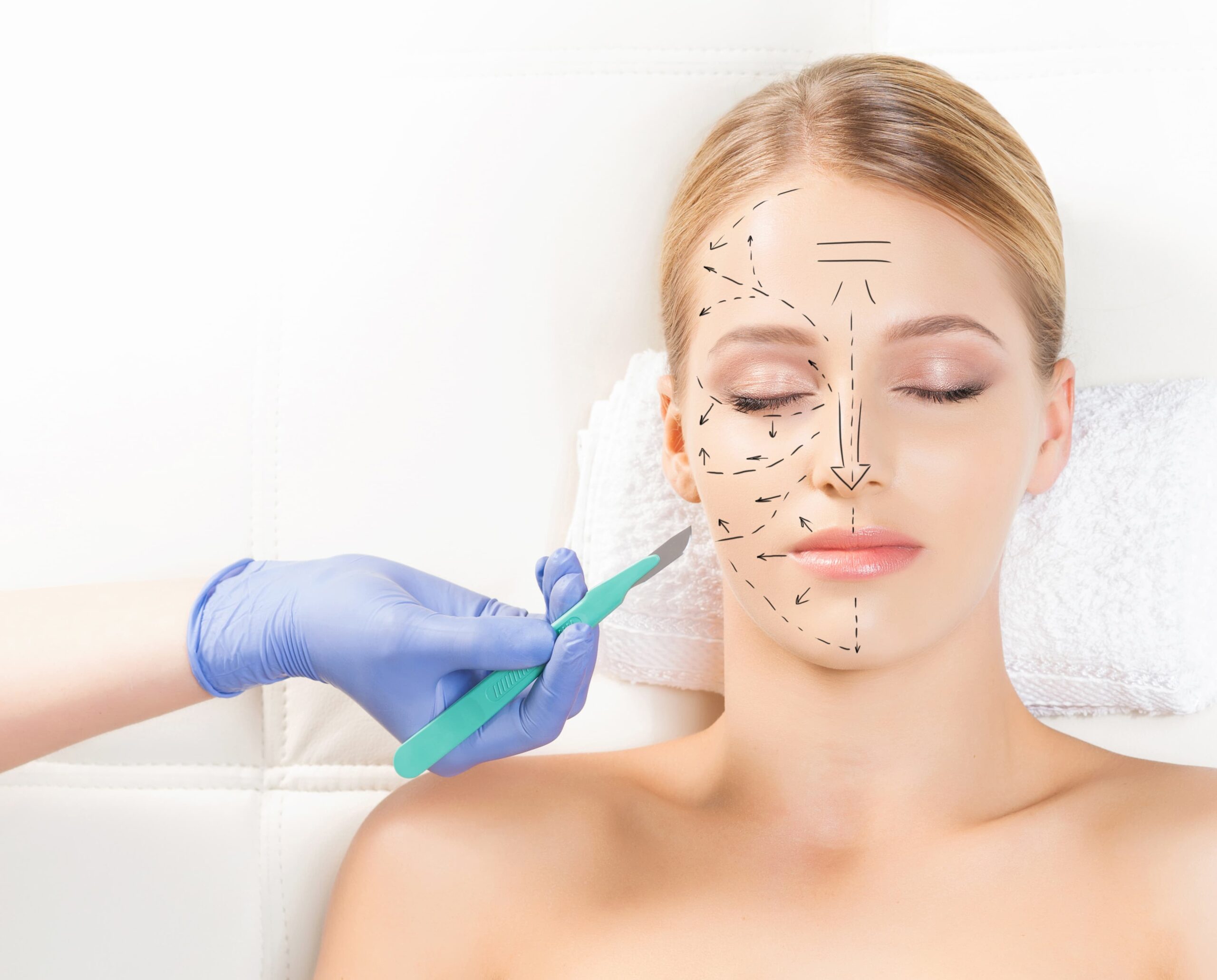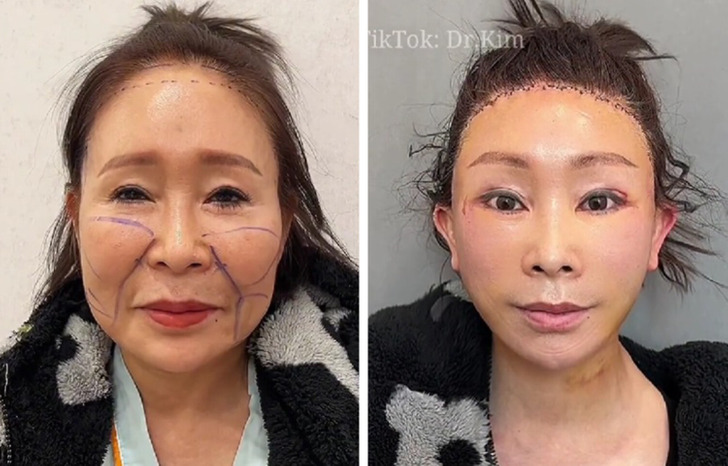Examining the Mental and Social Factors That Drive People to Think About Aesthetic Surgical Treatment as a way of Enhancement
The decision to seek cosmetic surgical treatment commonly prolongs past mere looks, intertwining with social and psychological characteristics that merit comprehensive exam. Elements such as self-worth, pervasive social charm criteria, and the pervasive impact of social media converge to form specific motivations for medical enhancement.
The Function of Self-worth
Self-esteem significantly influences a person's choice to pursue cosmetic surgical procedure. Individuals with low self-esteem usually view themselves in a negative light, leading to feelings of insufficiency concerning their physical look.

Eventually, the role of self-worth in the decision-making procedure pertaining to cosmetic surgical treatment highlights the intricate interplay in between body image, individual satisfaction, and psychological health. Recognizing this relationship is important for health care specialists to make sure that individuals are making educated choices rooted in realistic assumptions and psychological health.
Social Charm Requirements
Influenced by prevalent media representations and cultural narratives, social appeal standards play a critical function in forming people' understandings of their own bodies. These standards are frequently identified by an idyllic kind of charm that stresses attributes such as slimness, youthful vigor, and symmetry. As these suitables are perpetuated through different channels, including advertising, tv, and film, people often internalize these messages, resulting in dissatisfaction with their all-natural appearance.
The ramifications of these social norms extend past visual preferences; they can impact self-confidence, mental wellness, and social relationships. Individuals who regard themselves as falling short of these criteria may experience sensations of inadequacy, triggering a need for plastic surgery as a means of achieving societal authorization. This search is frequently sustained by the belief that adapting these perfects will improve not just physical appearance but additionally social standing and individual fulfillment.

Influence of Social Network
The influence of societal charm requirements is more amplified by the increase of social networks systems, where curated photos and idealized representations of appeal are common. Individuals are regularly revealed to filteringed system and modified photographs, which often portray unattainable physical characteristics. This exposure cultivates a culture of comparison, leading individuals to assess their very own appearance versus these usually unrealistic criteria.
Social media site influencers and celebs regularly advertise aesthetic treatments, stabilizing the notion that medical enhancements are a feasible ways for accomplishing societal suitables (plastic surgery rancho cucamonga). The presence of these improvements can produce an understanding that going through cosmetic surgical procedure is a common practice, thereby influencing individuals to take into consideration comparable interventions as a pathway to boosted self-esteem and social acceptance
Moreover, the interactive nature of social media permits prompt feedback through sort and remarks, even more reinforcing the need to satisfy preferred charm standards. Such communications can aggravate sensations of inadequacy and drive individuals towards plastic surgery as a way of acquiring recognition. Eventually, social networks plays a critical duty fit perceptions of elegance, which significantly influences the decision-making processes surrounding cosmetic surgical procedure.

Cultural Viewpoints on Look
Across different cultures, assumptions of look are deeply rooted in historical, social, and economic contexts, shaping individuals' sights on appeal and value. In many societies, appearance works as a substantial pen of identity, influencing social standing, specialist chances, and personal partnerships. For instance, in some societies, light skin is often connected with riches and benefit, while others might glorify darker skin tones as symbols of stamina and authenticity.
In addition, standard charm standards are often bolstered through social narratives, media representations, and family members influences, leading to varying ideals across different regions (plastic surgery click here for info rancho cucamonga). In Western cultures, the emphasis on young people and physical fitness typically drives people towards cosmetic enhancement, while in particular Eastern cultures, even more subtle modifications lined up with standard appearances may be liked
Globalization and the proliferation of electronic media have actually even more made complex these dynamics, creating a hybridization of beauty ideals that goes beyond geographical limits. As individuals significantly browse these social narratives, the pressure to conform to certain look requirements can bring about the desire for cosmetic surgical procedure, showing an intricate interaction of personal ambitions and social worths. Comprehending these cultural viewpoints is crucial in dealing with the motivations behind plastic surgery considerations.
Emotional Effects of Aesthetic Surgical Procedure
Several people looking for plastic surgery report experiencing profound mental effects that can substantially change their self-perception and additional resources emotional well-being - plastic surgery rancho cucamonga. The need for physical enhancement usually originates from underlying concerns such as low self-confidence, body dysmorphic condition, or social pressures regarding beauty standards. For some, the prompt post-operative stage can lead to a temporary increase in positive self-image and contentment with their look, cultivating a feeling of empowerment
Nevertheless, these positive sensations may not be enduring. Study shows that while some clients experience improved self-worth, others may deal with heightened anxiety or anxiety if their expectations are not fulfilled. This inconsistency can occur from unrealistic suitables perpetuated by media depiction and cultural stories bordering appeal.
Additionally, the emotional ramifications of plastic surgery prolong beyond the individual. Relationships with friends and family may be stressed as social characteristics shift, resulting in sensations of isolation or alienation. Ultimately, the mental impacts of cosmetic surgical procedure are complicated and complex, requiring mindful factor to consider by both prospective individuals and health care carriers to make sure informed decision-making and sensible assumptions.
Conclusion
To conclude, the choice to pursue plastic surgery is significantly influenced by a combination of self-esteem problems, social elegance standards, and cultural point of views on appearance. The prevalent reach of social media sites even more worsens these stress, promoting unrealistic suitables that people often strive to obtain. Understanding these social and psychological factors is important for attending to the inspirations behind plastic surgery, highlighting the demand for an extra nuanced conversation bordering appeal and self-acceptance in modern society.
The choice to pursue cosmetic surgical treatment typically prolongs beyond mere visual appeals, linking with social and mental dynamics that merit extensive exam. Eventually, social media plays an essential duty in you could look here forming understandings of beauty, which considerably impacts the decision-making procedures bordering cosmetic surgical treatment.
As individuals increasingly browse these social stories, the pressure to adapt to specific look standards can lead to the need for cosmetic surgery, mirroring a complex interaction of individual goals and cultural worths.In conclusion, the choice to pursue cosmetic surgical treatment is dramatically influenced by a combination of self-worth problems, societal beauty standards, and social perspectives on appearance. Comprehending these emotional and social elements is necessary for resolving the motivations behind cosmetic surgical procedure, highlighting the demand for an extra nuanced conversation bordering appeal and self-acceptance in contemporary culture.